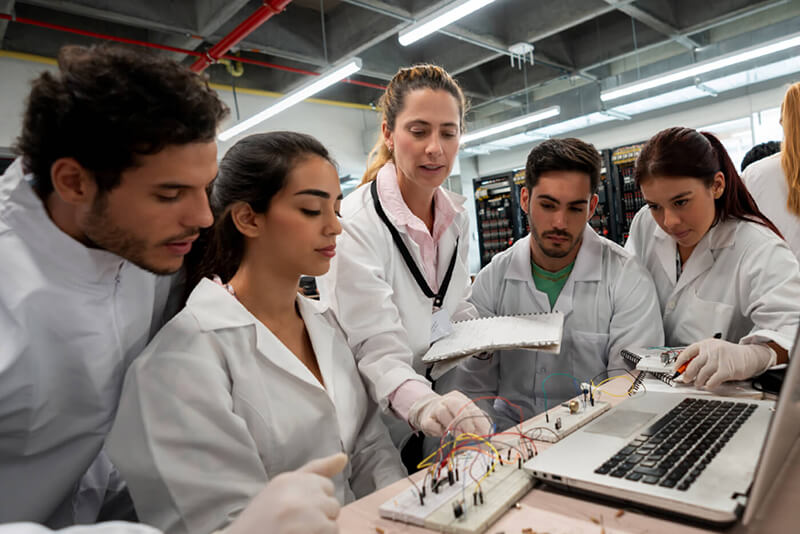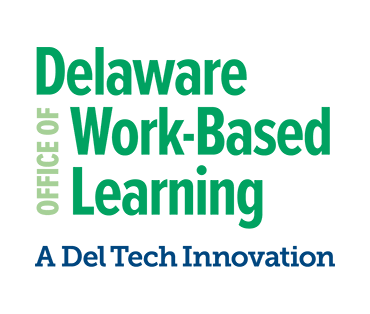Work-Based Learning
Work-based learning educational experiences are directly linked to real-world workplaces. Work-based learning ranges from guest speakers or workplace tours to an immersive apprenticeship.
Work-based learning:
- helps students identify career options and start building relevant skills.
- supports schools in meeting state-wide workforce development standards.
- introduces employers to their future workforce and gives them a role in shaping future employees’ career readiness.
- creates a qualified local workforce for Delaware – securing the state’s economic future.
Work-Based Learning In Action
How Work-Based Learning is Organized
In Delaware, we have a curriculum framework called Delaware Pathways that guides work-based learning standards across our state.
The Delaware Office of Work-Based Learning’s role is to ensure that schools have access to vetted work-based learning opportunities to support the Delaware Pathways curriculum. We partner with Delaware employers and community-based organizations to create meaningful student engagements that are rewarding for all involved!

What Students Learn
Work-based learning experiences teach students soft and hard skills.
- Soft Skills are social emotional skills and behaviors that make you an effective employee, like managing your schedule and communicating effectively.
- Hard Skills are workforce skills, ranging from creating a resume to performing a technical, industry-specific task.
The Delaware Office of Work-Based Learning works with employers and community-based organizations to design and offer three distinct kinds of student experiences:
Our Difference
Many approaches to work-based learning are in the market, including uncoordinated pay-to-play software solutions that meet the needs of a very small percentage of students.
The Delaware Office of Work-Based Learning stands apart.
We work like a concierge service – delivering schools the vetted learning experiences they need through companies of all sizes and market specialties.
No scanning posts, no waiting for a match. The Delaware Office of Work-Based Learning provides organized opportunities at scale to programs across the state – simply put, exactly what schools need, when they need it.

